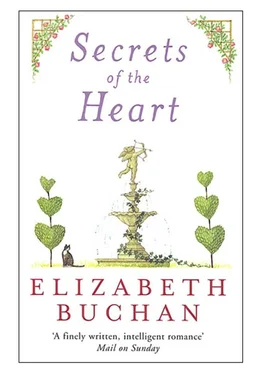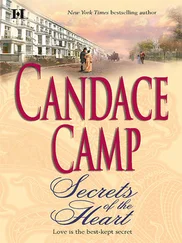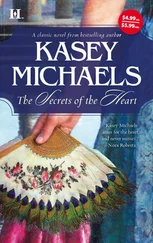Elizabeth Buchan - Secrets of the Heart
Здесь есть возможность читать онлайн «Elizabeth Buchan - Secrets of the Heart» весь текст электронной книги совершенно бесплатно (целиком полную версию без сокращений). В некоторых случаях можно слушать аудио, скачать через торрент в формате fb2 и присутствует краткое содержание. Жанр: Современные любовные романы, на английском языке. Описание произведения, (предисловие) а так же отзывы посетителей доступны на портале библиотеки ЛибКат.
- Название:Secrets of the Heart
- Автор:
- Жанр:
- Год:неизвестен
- ISBN:нет данных
- Рейтинг книги:5 / 5. Голосов: 1
-
Избранное:Добавить в избранное
- Отзывы:
-
Ваша оценка:
- 100
- 1
- 2
- 3
- 4
- 5
Secrets of the Heart: краткое содержание, описание и аннотация
Предлагаем к чтению аннотацию, описание, краткое содержание или предисловие (зависит от того, что написал сам автор книги «Secrets of the Heart»). Если вы не нашли необходимую информацию о книге — напишите в комментариях, мы постараемся отыскать её.
Secrets of the Heart — читать онлайн бесплатно полную книгу (весь текст) целиком
Ниже представлен текст книги, разбитый по страницам. Система сохранения места последней прочитанной страницы, позволяет с удобством читать онлайн бесплатно книгу «Secrets of the Heart», без необходимости каждый раз заново искать на чём Вы остановились. Поставьте закладку, и сможете в любой момент перейти на страницу, на которой закончили чтение.
Интервал:
Закладка:
Kitty got up and sat down at the foot of the bed, spreading out her manicured fingers on the counterpane, and was reminded of the things that went on in it, accomplished with shared greed and skill. Last night was not by any means the first Friday on which Julian had failed to turn up, but the shortfall mattered when you sensed that the slope was becoming steeper, or the precipice closer.
Was it significant? Freedom and space, and all the other abstracts Julian talked about with regard to their relationship, seemed at times to Kitty to come very expensive. In fact, because she loved Julian as she had not loved the others, she had grown to hate and distrust such terms. Anyway, most people didn’t want freedom. It was, well, too free.
Theo, darling, mad, Australian Theo, who cleaned the cottage three days a week as part of his therapy, would understand. ‘OK, darl,’ he would say, bringing out all the clichés. ‘He’s a flaming bastard. A stupid, blind bastard.’ And Kitty would bathe in the white heat of Theo’s gratitude and affection, which was Kitty’s repayment for having rescued him from the institution into which he had been binned. It would have the effect of thawing the ice-chip in her heart. Just a little.
Loving was so exhausting, so dependent-making, so hurtful. I have tried, I have tried , to conduct my career on the basis of good manners, affection and financial expediency, she thought, and I have succeeded. Yet I am continually surprised by how savagely love undercuts all of those things.
Before he left Lymouth on Sunday evening, Julian said goodbye to Kitty and returned briefly to Cliff House. London was the place where he worked and laid his head. Kitty’s cottage was the place where he conducted yet another part of his life, but this generous, light-filled Victorian house was home. Poised on the cliff above its own tiny beach a little way out of the town, it was where the parts of him had been shaped – difficult, hard, puzzling, as the process had been. Here, where the smell of salt and spiky marsh plant intensified in the spring, the birds surfboarded the waves and, when the sea grew rough and tides pounded, he could hear the grinding of stones, slate and granite, one upon the other. When the water retreated, leaving rank memorabilia of weed and detritus dotted like a pox on the smooth sand, and the sticky bottom slice of the cliff crept into view, the old passion for the fossil chase flared. On quiet summer days, the sand shimmered, the stone grew hot and the sea turned transparent. Then it was possible to hear the shift of sand underfoot, the eddy of a current on the turn, the splash of a seabird, and he discovered, yet again, the power of insignificant objects – a shell, a stone, a piece of wood – to satisfy.
Sometimes on the beach a memory shifted, unfolded. Then he remembered how he had longed to grow up, not only because he imagined he would be given the answer to the questions that puzzled him but because he had imagined that being grown-up meant that you were never lonely.
Cliff House had belonged to his parents, who had astonished themselves, and their friends, by producing Julian when they were well into their forties. ‘Never mind,’ said the wives of Lymouth, agog at this evidence of geriatric sex, ‘older people produce more intelligent children.’
Since the intelligence quotient mattered to his scholar father and quiet mother, they set about parenthood with the best of intentions which, unfortunately, were impossible to realize. They were too old and Julian too young.
‘It is one thing to enjoy the idea of a clever child, quite another to experience it,’ Julian’s father was heard to say more than once.
Perplexed by it all, they had left their son quite alone.
His growing-up had been quick and solitary and, as quickly, he had gone away to seek his fortune in the heaving, seething money markets of the East, only returning on their deaths. Then, Julian had set about banishing the past and all its clutter.
Cliff House was ripped open. Bathrooms were installed, ancient radiators replaced, the bay window rearticulated. Wrapped in Cellophane, upholstered furniture arrived from London, and interlined curtains were hung at the windows. On the plain, empty walls, Julian hung paintings, landscapes and seascapes, shot through with the sun and isolation that he craved in his home.
By then, he and Kitty had met and agreed on their partnership and she had helped him with the transformation. But not too much. Cliff House was Julian’s reclaimed domain. Kitty had hers, and the freedom and separate spaces provided the key to their ten years together. Separate territories gave space, light, flexibility: the elements he most admired.
It was very cold that Sunday evening in January but, after packing up his papers and books, including Undercover During the Second World War , Julian abandoned the house, walked down the garden to the path running along the edge of the cliff and slithered down to the beach.
The cold wrapped him with the curious sensation of being both icy dry and wet. The sea roared and the wind whipped any traces of warmth from his body and flayed the skin of his lips.
It was just as Julian liked it.
Nature was not often overly generous, but she had been to the girl in the walled garden. Whose genes had those been? The father’s, the mother’s? A plundering Scandinavian way back in the centuries? She had been tall, ash-blonde, her hair shading to white by the hairline, with a lustrous complexion and grey eyes. This was a beautiful, spirited creature, he thought, with the flight of fancy he always indulged at the beginning of a chase. Not yet tested, still stretching her muscles, pregnant with secrets and visions.
Not now?
She was not in the least like Kitty. The disloyalty made him pause, and it was entirely the wrong moment to become sidetracked. He knew the risks of taking his eye off the ball when the figures were on the slide.
A flash of light above made Julian look up. There, poised on the cliff path that ran between the cottage and Cliff House was Kitty, in her blue cashmere jacket, waving to him with a torch. Every line of her body and movement of her arm proclaimed her love. Waving goodbye. After a second or two, he raised his arm and waved back.
On the way back to London in the car, Julian worked out a campaign by which to get a better look at Flagge House and its owner.
4
Bel rang on the Monday after the funeral. ‘Are you all right? I’m sorry I wasn’t there but I thought of you.’
‘Well, that’s something.’
‘Sticks and stones,’ said Bel, ‘will hurt me far more than your witticisms. You know me, death, babies, I’m hopeless at the messy things.’
Quite right, Agnes thought. It was as well to know one’s limitations but, all the same, she could have done with the comforting sight of Bel’s blue-streaked hair and matching fingernails.
She and Bel had agreed to found Five Star five years ago. Because they were both good, and lucky, the company had flourished. The previous year, they had won two prizes for their documentaries on micro-credit in the Third World, and the controversial look at whaling communities in Newfoundland. Five Star was run from Bel’s Notting Hill Gate flat, where Agnes, who preferred to be based at Flagge House, stayed on her trips up to London and for which she paid Bel a healthy rent.
Bel was four years older, and the administrative genius behind the company. She was also hugely talented and experienced, but a snag in the psyche prevented her from achieving quite what she wanted. Reaching for the stars, Bel shied away when they sailed into view – a binge or an illness – leaving Agnes to cope. Veering between brilliance and burnout, that was Bel, and Agnes would have walked on water for her.
Читать дальшеИнтервал:
Закладка:
Похожие книги на «Secrets of the Heart»
Представляем Вашему вниманию похожие книги на «Secrets of the Heart» списком для выбора. Мы отобрали схожую по названию и смыслу литературу в надежде предоставить читателям больше вариантов отыскать новые, интересные, ещё непрочитанные произведения.
Обсуждение, отзывы о книге «Secrets of the Heart» и просто собственные мнения читателей. Оставьте ваши комментарии, напишите, что Вы думаете о произведении, его смысле или главных героях. Укажите что конкретно понравилось, а что нет, и почему Вы так считаете.








